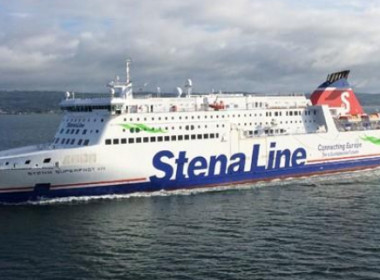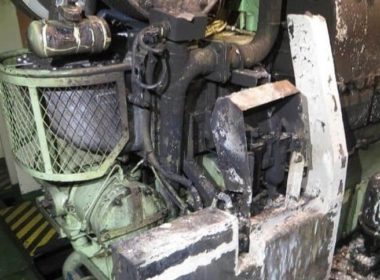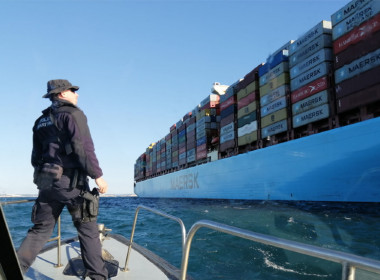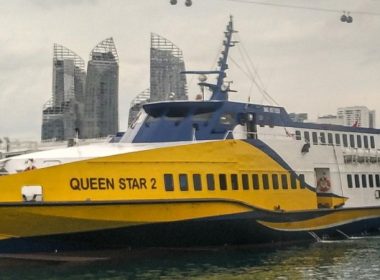Maintenance error led to engine room fire on chemical tanker, NTSB report finds

A maintenance error caused an engine room fire aboard a chemical tanker last year, resulting in US$1.2 million in damages, the US National Transportation Safety Board (NTSB) said recently.
At 19:13 local time on April 29, 2022, the Malta-flagged chemical tanker Endo Breeze was transiting outbound through the Raritan Bay West Reach channel near Staten Island, New York, when oil spray from a fuel injector pump on the starboard main engine ignited off nearby hot surfaces, causing a fire.
The crew contained the spread of the fire by removing fuel and oxygen sources and by activating the vessel’s fixed fire extinguishing system.
To determine the cause of the oil spray, investigators examined the engine’s number one cylinder fuel injector pump and discovered a slight offset on the banjo tube assembly. Investigators determined it is likely that the engineer did not correctly follow the manufacturer’s procedure for fuel injector pump reassembly when performing maintenance a day before the fire.
The NTSB has investigated several recent casualties involving mechanical or fuel line fitting failures that led to engine fires following maintenance of shipboard diesel engines. Endo Breeze’s engine room fire shows what can happen when equipment manufacturers’ recommended maintenance procedures are not followed.
“In this case, not following the tightening sequence described in the diesel engine manufacturer’s manual led to the misalignment and failure of a high-pressure fuel connection on an engine’s fuel injector pump’s assembly,” the report said. “Due to the high risk of fire associated with pressurised fuel, when working with diesel engine components, it’s critical to carefully follow manufacturer assembly procedures and review manufacturer manuals and guidance on a regular basis to ensure familiarity with correct maintenance procedures.”
The NTSB report also emphasised the need for training to prevent and contain engine room fires.
“To prevent engine room fires and ensure they are effectively contained, operators should provide mariners realistic scenario-based training, including training that covers engine room emergencies,” the report said. “This training should also cover procedures for effectively shutting down machinery, fuel oil, lube oil, and ventilation systems, as well as boundary monitoring.”
Marine Investigation Report 23-25 is available online here.








